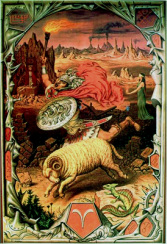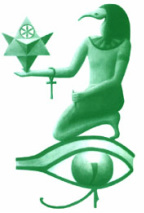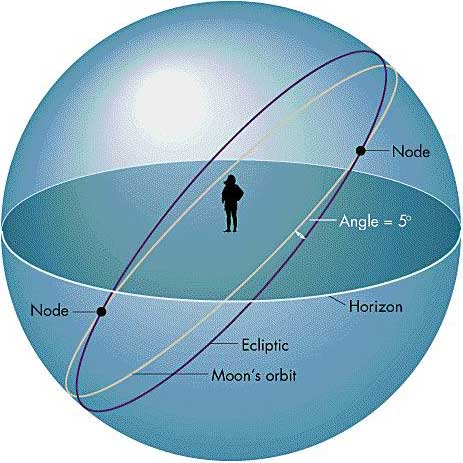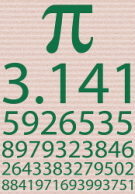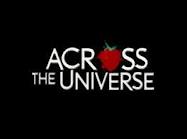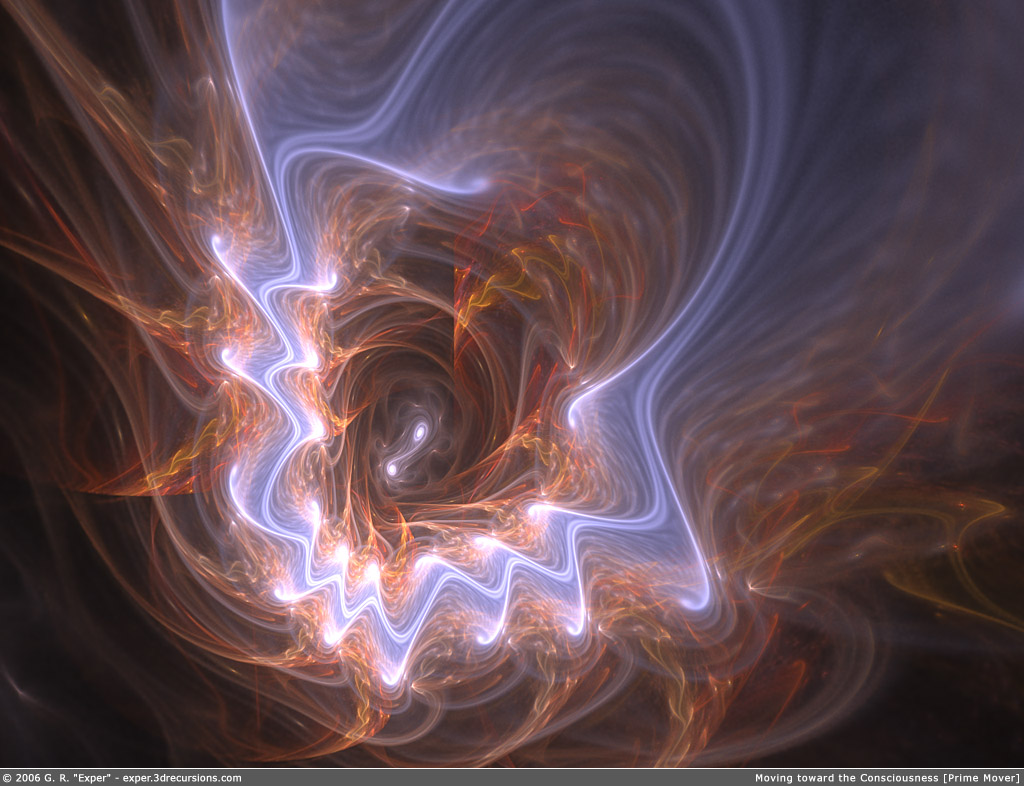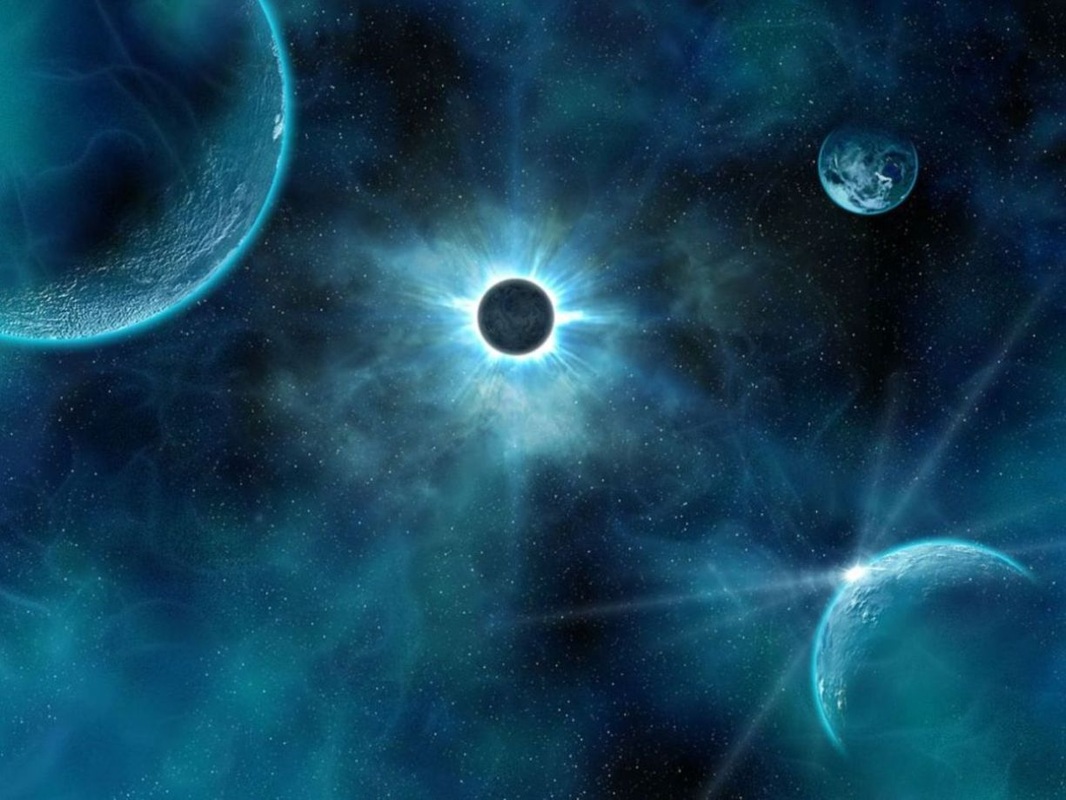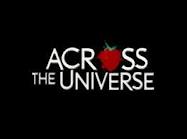Prometheus.......then and now
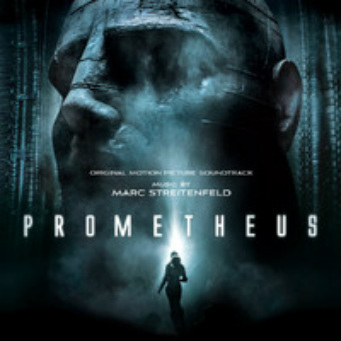
In the Ridley Scott blockbuster Prometheus, a late 21st century space mission sets off to a distant galaxy in search of the origins of human life. These are thought to reside with an advanced civilisation that in the distant past had ‘seeded’ humanity. Finding remnants of the civilisation and some of its sleeping inhabitants, the explorers are confronted with the bitter truth that the aliens, our forebears, have sinister plans for both humanity and planet earth itself. At the end of the film the lone survivor of the expedition goes in search of ‘why?’
The movie is great to look at and gripping enough but as an exploration of extra-terrestrial and more mystical themes is unsatisfying.
Prometheus is of course a major figure in mythology, the subject of great poets and philosophers and a significant and highly relevant astrological archetype.
So who is Prometheus and what themes does he represent?
As in most Greek and old world myths there is no one story. At different times different writers focussed on different elements, presenting it from different perspectives, adding to, subtracting from or otherwise embellishing the legend to fit the purposes of the telling. In some stories Prometheus is the creator of mankind, a theme touched on in the movie. He is said to have achieved this by breathing into clay – an image which is uncannily biblical (the origin of the name Adam, the first man of the Old Testament, is ‘red’ and sometimes ‘red earth’ – the colour of clay).
Prometheus is variously described as a great warrior, a master of the arts and sciences and an intuitive, with a rare ability to perceive the future. In another version of the myth, part of which the film-makers allude to, though quite obliquely, Prometheus creates mankind upon earth unaware that Zeus’s ulterior motive is for man to unwittingly prepare it (to keep it ‘warm’ as it were) for another race of beings at a future time. Learning of this Prometheus instils hope in the hearts of men and shields them from the truth.
Prometheus Bound
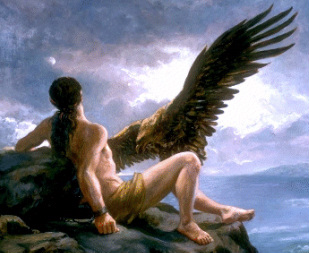
And on and on it went…..
In some versions Hercules did away with the eagle and finally released him, in others the sacrificial Chiron got Zeus to agree to him swapping places with Prometheus. In still other versions Zeus sends Pandora (of Pandora’s Box fame) to earth as a further punishment for mankind. Fledgling man’s encounter with a more destructive and divisive aspect of the feminine force is of course paralleled in the story of Eve’s disobedience in the Garden.
What is fascinating is the notion of fire, and what it might describe? The first use of fire by ancient man must have been truly liberating, in ways incomprehensible to our modern sensibility. With it came light and warmth and protection from predators. With fire cooking, drying and the preserving of foods and skins was made possible. It allowed prehistoric man to shape his environment, utilise new hunting strategies and employ a powerful weapon. It represented a staggering technological leap.
But was the fire brought by Prometheus symbolic more of knowledge, of mind? As some of the myths suggest did he awaken man, educating him, directing him in the ways of language and learning, of building and counting and reading the stars? This criss-crosses, again, with images of the Garden of Eden; of the tree of the knowledge of good and evil that stood at its centre, and the partaking of the forbidden fruit of the tree which opened the ‘eyes’ of a still juvenile mankind.
If Zeus stands for Yahweh or Jehovah, the God of the Old Testament, is Prometheus then the lowly serpent and the architect of the ‘fall’, or a liberator, the light bearer Lucifer? Was there involvement or interference even, by some extra-terrestrial or supernatural agency (for whatever reasons) in the evolutionary development of man? Or can the legend of Prometheus and the bringing of fire equate more to a great evolutionary ‘event’ itself, the appearance of the ‘new brain’ as it is sometimes referred, the neo cortex and the even more recent pre frontal cortex?
Prometheus Unbound
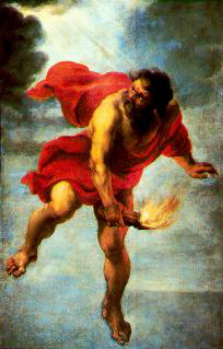
The process, only recently initiated in the context of evolutionary history, continues to this day as technology and science in particular, march forward. The new and extremely powerful ability to analyse brought with it powers of self-awareness and a facility to stand ‘outside’, as it were, and to observe, study and reflect. Awakened in this was thus the sense of self and of ego and an intrinsic separateness. In biblical as well as anatomical terms we see the emergence of choice and free will. Was it these that the planters of the great tree were concerned about? That mankind wouldn’t or didn’t have the maturity of being to harness the new power, which would plunge him thereafter into a ‘fall’ away from the natural world?
There is an irresistible urge, and probably all the evidence we need, to suggest that the emerging new brain, with all its potential and creativity, exposed man to hitherto unknown experiences. It would ignite his primal fears, jealousies and competitiveness with steroid like potency. And as the process accelerated an epidemic of self-doubt, isolation and insanity swept into the world, sitting uncomfortably and dangerously alongside the obvious triumphs and truly great forms of progress
We, humanity, sit atop the evolutionary pyramid. We are masters of much and slaves to more. As we struggle to put the lid back on Pandora’s Box, weighed down by nuclear weaponry, overpopulation, climate threat and the like, we are challenged like never before. And, paradoxically, we seem to be at our best when challenged. Something, perhaps truly evolutionary in nature and part of a plan beyond our comprehension, impels us to work out a solution, to draw on our Promethean inventiveness. Do we, just maybe, stand ever so precariously on the threshold of a new step in evolution? And can we band together, unify and avail ourselves of Prometheus’s most important gift – hope?
The Astrological Prometheus
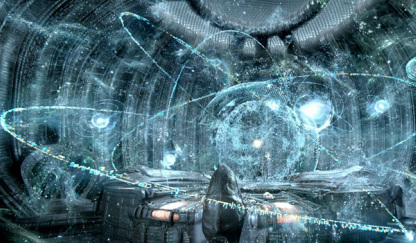
In Cosmos and Psyche distinguished author and astrologer Richard Tarnas makes a compelling case for Prometheus as a truer representative (or at least a co-representative) of the astrological Uranus.
In stealing the fire and defying the Gods Prometheus stands for the rebel, the free spirit, the revolutionary and the usurper of authority, all expressions that we associate with Uranus. He is inventive and cunning, also spontaneous. He acts independently. And he gives, or circulates, the fire to mankind, indicative of the Aquarian principles of brotherhood, sharing and universality. His lacking may be in discretion, for in his enthusiasm he may overlook or fail to question whether the recipients of the change he is about to initiate are ready for it? Many of the outcomes of revolutions throughout history bear this out, even as the impulse behind the urge for change seems undeniable.
The Promethean/Uranus archetype is in various guises a visionary, a change agent, an eccentric, highly individual, a confronter of the status quo and a champion of individual and social freedom.
Figures from history that fit the mould (but then sought to break it!) include Buddha, Moses, Spartacus, Cleopatra, Alexander (the great), Mary Magdalene, Hypatia, Mohammad, Joan of Arc, Galileo, Copernicus, Martin Luther, Mozart, Catherine the Great, Darwin and the greatest revolutionary of them all – Jesus the Christ.
Also Einstein, Marie Curie, Picasso, Dali, Mary Wollstonecraft, Isadora Duncan, Gurdjieff, Amelia Earhart, Ghandi, Maria Montessori, Mae West, Che Guevara, Martin Luther King, Elvis, Mikael Gorbachev, Jimi Hendrix…….and more recently Germaine Greer, Nelson Mandela, Steve Jobs, Aung San Suu Kyi, Madonna (the singer) and Mark Zuckerberg, to name but a few.
In true Promethean spirit each brought ‘fire’ to the many, pushing the boundaries of the known and the accepted and, in their own distinct way, forever changed the world.
Till next time.....
Cheers
Bob

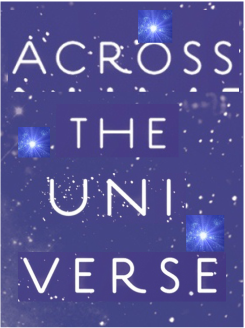

 RSS Feed
RSS Feed
